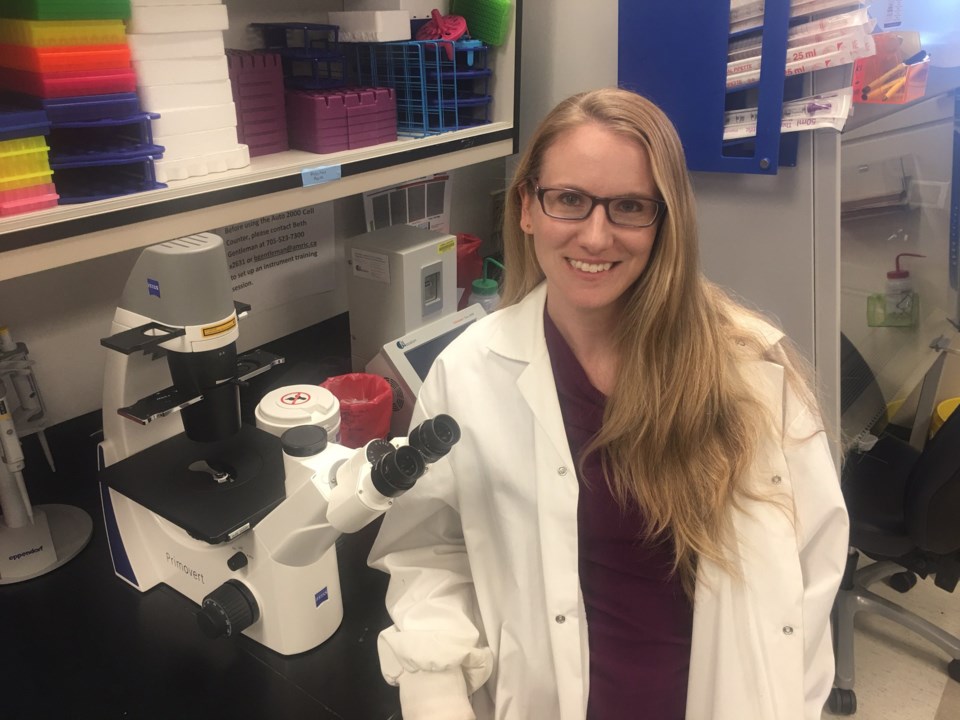There is some fascinating research happening at the Health Sciences North Research Institute (HSNRI), as Dr. Carly Buckner is in the second phase of a study on alternative forms of cancer treatment.
Buckner's research is focused on complimentary and alternative medicines (CAM) and their effects on people that are dealing with the symptoms of chronic diseases such as cancer.
The study is still in its early stages, and Buckner has been working on the CAM use in patients project for just over a year now. She has received a strong base of support from patients, volunteers and the oncology department at HSN.
Cancer research is something most often associated with big cities in sprawling research labs, but it’s also happening right here in Sudbury, as Buckner is now in the stage of gathering patient information in the hopes of finding a CAM that has yielded positive results in her control group.
"I've found in my research that after diagnosis, half of cancer patients try a CAM," said Buckner. "Usually patients hear from fellow patients or family and friends about CAMs that can help improve the negative side effects associated with cancer and its treatments."
These CAMs can range from vitamins to teas to accupuncture and anything that doesn't fall into the category of "traditional medicine."
"Knowing that a lot of these patients are trying CAMs, I had to be approved through the Research Ethics Board to move forward with the study, where I'll now be getting consent from patients to take a look at their medical records and start looking at clinical outcomes," said Buckner.
"It starts with the patients agreeing to be part of a control group and them taking a questionnaire that begins with asking 'what are you taking?' From there I look at common CAMs among a group of patients and see what their results have been."
If Buckner is able to identify a CAM that has yielded concrete positive outcomes, she is then able to apply for research grants to study the effects of the CAM on a larger scale and conduct clinical trials.
Buckner is experimenting with flaxseed oil along with ginger, curcumin, and electromagnetic fields.
"Many people are unaware that several chemo agents used in the clinics today originated from plants and natural products," said Buckner.
"There is potential in this study to drastically change how cancer treatment plans are created.”
Buckner is trying to determine if CAM use changes clinical outcomes by providing any benefit to patients or whether these patients experience more negative side effects. Northeastern Ontario has significantly higher rates of cancer incidence and mortality than the rest of Ontario.
Recognizing this is a health priority for the region, Buckner and HSNRI see a need for studying cancer, supporting cancer patients, promoting cancer research and providing personalized treatment solutions.
"I'm grateful for the support from HSNRI and the Northern Cancer Foundation," Buckner said. "This research project is possible because of funding from NCF."
Anyone seeking more information on personalized treatment solutions or Buckner's work can visit www.hsnri.ca or contact [email protected].
